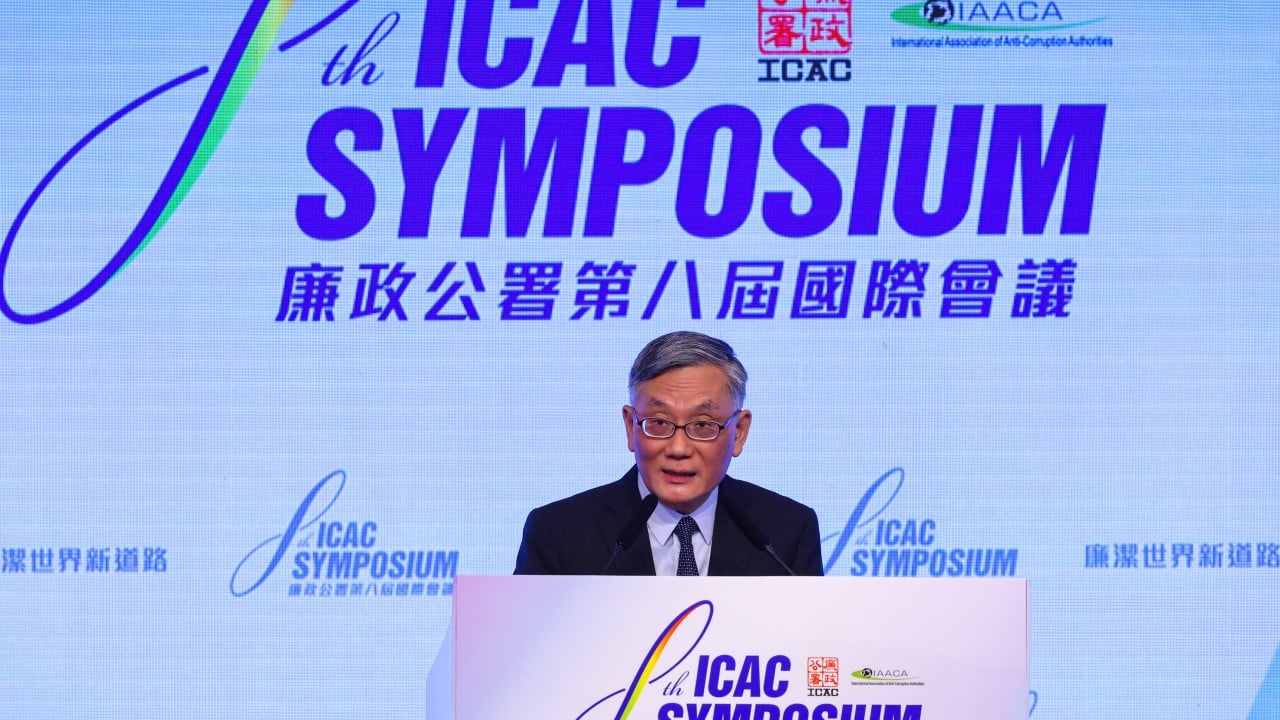Strong core values just as vital as law enforcement in anti-corruption fight, Hong Kong’s top judge says, as ICAC expands international work
The application of strong core values is just as important as law enforcement in the fight against corruption, Hong Kong’s top judge has said, as the city’s anti-graft agency expands its international work.
Chief Justice Andrew Cheung Kui-nung said on Wednesday that not all behaviour involving corruption could be considered a crime, but the insidious nature of such actions harmed the rule of law “beyond measure”.
“It may not be possible to write all permutations of corruption into the law, and … not all forms of corruption may be criminal offences. Corruption should still be opposed as its prevention inspires faith in the rule of law and vice versa,” Cheung said.
The judge was speaking at a three-day symposium organised by the Independent Commission Against Corruption (ICAC) to mark its 50th anniversary.
More than 500 anti-graft officers, judges, prosecutors, regulators and academics from 60 jurisdictions spanning six continents have been attending the conference, which addresses the global challenges and strategies in anti-corruption work.
Citing the ICAC’s work in changing public attitudes towards rampant systemic corruption in the city in the 1970s, Cheung said the agency’s success was due to its public education over core values of preventing unfair advantages from being obtained.
The top judge added that such a values-based approach, which battled corruption through compliance, matched the deterrent effect brought about by criminal prosecution.
“Studies have shown that this approach of combating corruption is dependent on the likelihood of detection,” Cheung said.
The ICAC signed a memorandum of understanding at the symposium’s opening with the UN Office on Drugs and Crime, as well as anti-graft bodies in Kazakhstan, Mauritius, Saudi Arabia and South Africa to boost communication on anti-corruption work.
Officiating the ceremony, Chief Executive John Lee Ka-chiu said the government was pleased to support the ICAC’s work with overseas partners to sustain its “pioneering role” in the fight against corruption.
“The presence of the UN Office on Drugs and Crime as guardian of the convention, and the national authorities of various countries here in Hong Kong to finalise bilateral agreements with the ICAC exemplify the international cooperation and exchange that can make a difference regionally and globally,” Lee said.
The city leader also noted the city owed its success in the fight against corruption to its “robust regulatory regime” in line with international standards under the “one country, two systems” governing principle.
Danny Woo Ying-ming, commissioner of the ICAC, said the latest agreement underscored the city’s commitment to anti-graft work.
“The chief executive’s presence exemplifies the Hong Kong government’s resolute commitment in the fight against corruption and staunch support for international cooperation against corruption,” Woo said.
The Hong Kong International Academy Against Corruption, an anti-corruption training institution established by the ICAC in February, will also organise a training programme with the International Association of Anti-corruption Authorities on the role of technology in anti-graft work after the conference.
Participants in the programme will also undertake a three-day study tour in Changsha.


